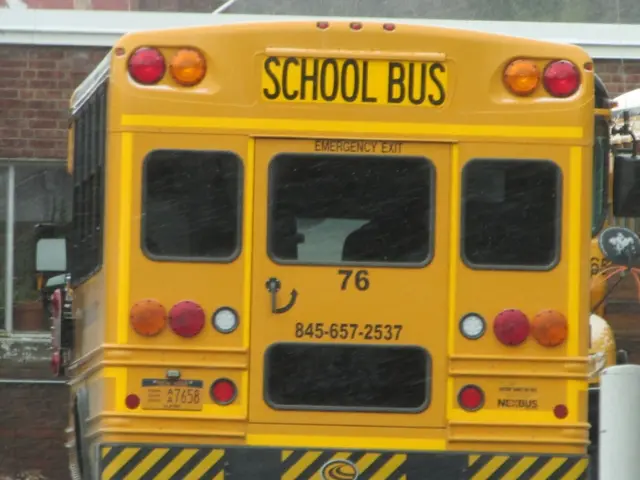Debating over the removal of sex education from school programs?
New Portuguese National Strategy for Citizenship Education (ENEC) Shifts Focus
In 2025, Portugal unveiled the new National Strategy for Citizenship Education (ENEC), replacing the 2017 version. This strategy marks a significant shift in focus and thematic priorities, with a new emphasis on financial literacy and entrepreneurship[1][2][3].
The ENEC document highlights essential learning areas such as human rights, democracy and political institutions, sustainable development, financial literacy, and entrepreneurship. These themes are compulsory and integrated across educational levels[3].
One of the most notable changes is the reduction in direct engagement with gender ideology and sexuality topics. While these topics will still be addressed in the context of human rights violations, they will no longer be a specific focus in the curriculum. This change is a response to electoral promises and reflects conservative pressures[1][3].
However, human rights remain a key pillar, with the ENEC document emphasizing the importance of combating discrimination and violence against ethnic, religious, and sexual minorities, framing these issues notably under social cohesion and empathy themes[1][3].
The proposal encourages primary school students to express openness and curiosity about other cultures, participate in initiatives that celebrate and value their own culture, and those of others. Second and third-year students are asked to value cultural diversity in the school context, discuss the relevance of protecting the rights of minorities and their cultures, and recognize the challenges that migrants experience in the host society[1][2].
The term "cultural diversity" replaces "interculturality" in the proposal. A second level of emphasis is placed on health, risk and road safety, pluralism and cultural diversity, and the media[1].
The media is a prominent topic in the proposal, aiming to encourage critical and safe use of digital technologies, information, and content generated by artificial intelligence[1]. Older adults are asked to propose ways to transform and improve the online environment and well-being in their relationship with digital media, to prevent online risks such as addiction, cyberbullying, and sextortion[1].
High school students will critically reflect on the cultural consequences of globalization, analyze different forms of discrimination, debate the role of intercultural dialogue and pluralism in culturally diverse societies, and prepare personal and family budgets, as well as budgets for entrepreneurial projects[1][2].
In the essential learning path for the third cycle and in the human rights chapter, students are required to analyze historical and current cases of human rights violations, including human trafficking, sexual abuse, gender-based violence, as well as violence against people with non-normative sexual orientation and gender identity and expression[1].
The government's proposal for ENEC includes animal abuse as a topic under sustainable development for second-cycle students, encouraging reflection on human action and animal welfare[1]. ENEC fulfills an election promise made by the government[1].
Several LGBTI+ rights associations have publicly questioned and criticized the new strategy for reducing focus on sexuality and gender diversity education, arguing that it undermines inclusive citizenship education[4].
In summary, the new ENEC mandates a citizenship education curriculum that reduces direct engagement with gender ideology and sexuality topics, instead emphasizing financial literacy and traditional human rights education, democracy, and sustainable development. This represents a deliberate curricular and ideological shift reflecting current political priorities in Portugal[1][3][4].
[1] https://www.republica.pt/cultura/educacao/189027/estreia-a-estrategia-nacional-de-educacao-cidadana-2025 [2] https://www.publico.pt/2025/03/16/educacao/estrategia-nacional-de-educacao-cidadana-2025-uma-leitura-critica [3] https://www.lemonde.fr/europe/article/2025/03/18/au-portugal-nouvelle-strategie-d-education-civique-sans-plus-de-gender-ideologie_6124914_3214.html [4] https://www.expresso.pt/cultura/artigos/estrategia-nacional-de-educacao-cidadana-2025-nao-ficou-satisfeito-com-a-reducao-do-foco-na-educacao-sobre-direitos-lgbti/2025/03/18/6406582
- In alignment with the new ENEC strategy, citizenship education in Portugal is shifting focus from gender ideology and sexuality topics towards an increased emphasis on financial literacy, entrepreneurship, and traditional human rights education, democracy, and sustainable development.
- The revised ENEC document also prioritizes health, risk and road safety, pluralism and cultural diversity, and the media, with older adults encouraged to propose ways to transform and improve the online environment, addressing concerns such as addiction, cyberbullying, and sextortion.







